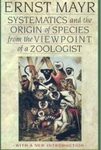![Apes, Monkeys, Children, and the Growth of Mind Apes, Monkeys, Children, and the Growth of Mind]()
Click to have a closer look
About this book
Customer reviews
Biography
Related titles
About this book
In this fascinating introduction to the study of primate minds, Juan Carlos Gomez identifies evolutionary resemblances - and differences - between human children and other primates. He argues that primate minds are best understood not as fixed collections of specialised cognitive capacities, but more dynamically, as a range of abilities that can surpass their original adaptations.
Customer Reviews
Biography
Juan Carlos Gomez is Lecturer in Psychology at the University of St. Andrews, Scotland.
By: JC Gomez
352 pages, 17 line illus
This is an important book that brings together information not otherwise readily available in concise form. Students and investigators interested in the origins of cognition will benefit from [it]. -- John D. Newman Journal of Nervous and Mental Disease 20050401 [Gomez] aims to learn about our human minds, both how they originated and what their nature is, by looking at experimental studies with other primates. The book is a delightfully dense account of a wide range of such studies. This exploration into the historical and evolutionary heritage of the last great mystery--the human mind--is enlightening, informative, and simply a wonderful reminder of how complex evolutionary variation really is. -- Robin L. Zebrowski Phenomenology and the Cognitive Sciences 20080301 Juan Carlos Gormez's working thesis in Apes, Monkeys, Children, and the Growth of Mind is that "our minds are part of a wider evolutionary pattern discernible in the minds of other primates". He aims to learn about our human minds, both how they originated and what their nature is, by looking at experimental studies with other primates. The book is a delightfully dense account of a wide range of such studies. This exploration into the historical and evolutionary heritage of the last great mystery--the human mind-- is enlightening, informative, and simply a wonderful reminder of how complex evolutionary variation really is...The author should be lauded for his attempts to examine such difficult topics--the nature and origin of the human mind is difficult enough to approach, and an evolutionary perspective that approaches the topic through cognitive ethology was much needed. This review of the literature fills an important gap while being wonderfully engaging and informative. However, in a book ostensibly written to show our very fundamental connection with other primates on an evolutionary continuum, it instead serves to show not just the unique character of human experience and action, but the similarly unique character of a dozen other primate species, both far and near to us on the evolutionary tree. It opens up new questions in many areas, which, philosophically speaking, is a job well done. -- Robin L. Zebrowski Phenomenology and the Cognitive Sciences




































